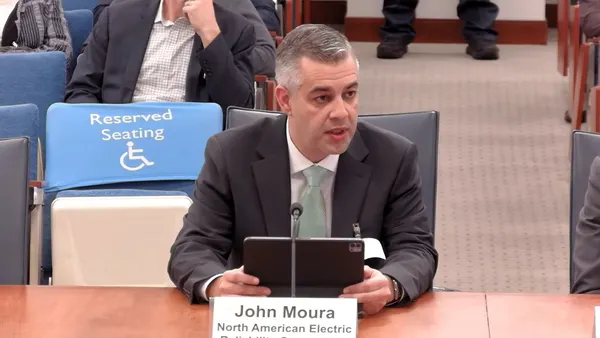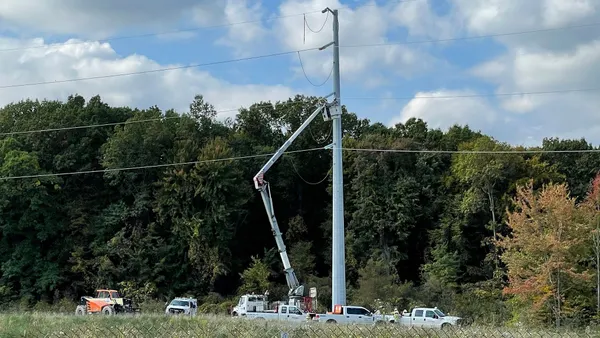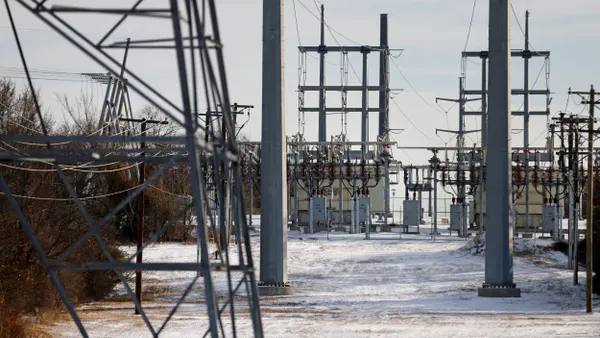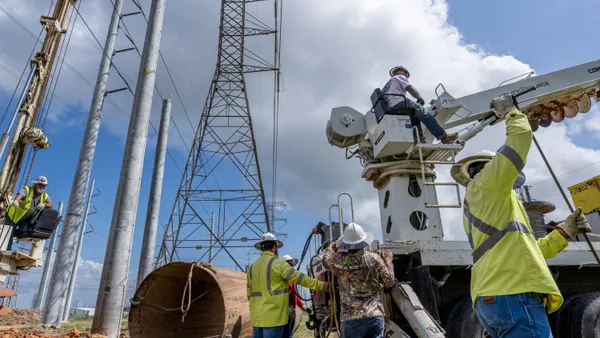Dive Brief:
- The National Transportation Safety Board (NTSB) issued a safety recommendation report Thursday that concluded "omissions" in the engineering plans for work being done on the Columbia Gas pipeline system led to system overpressurization and a series of deadly explosions in September.
- The report contains five recommendations, including a review of Columbia parent company NiSource's "records and documentation of natural gas systems." NTSB is also seeking to eliminate a licensing exemption for work performed on public utility systems.
- NiSource said it is reviewing the NTSB's findings, but added that since the explosions, the company has gone ahead with new steps to enhance system safety and protect against future overpressurization.
Dive Insight:
The September explosions put Massachusetts' pipeline system under a magnifying glass, and now opponents of natural gas see an opening.
A temporary moratorium on gas infrastructure work was put in place following the explosions, but now the Sierra Club has petitioned Gov. Charlie Baker, R, to undertake a broad review. Local public health officials say they want a "comprehensive study" of how new natural gas infrastructure would affect the health and safety of those living nearby.
Sierra Club organized more than 75 local health boards to call on Baker for the review. The September explosion killed one person, sent 21 to the hospital, damaged 131 structures and destroyed five homes.
Of NTSB's five recommendations, four are specific to NiSource. The fifth is directed at a licensing exemption that permits public utility work to be done without a professional engineer signing off on some plans. Massachusetts allows an exemption from requirements that a professional engineer perform public utility work, and the NTSB report identified this as a missed opportunity for design oversight.
"The seal of a [professional engineer] should be required on all public utility engineering plans to reduce the likelihood of accidents such as this occurring," the report said.
NTSB also recommended that "qualified professionals" review all "records and documentation of natural gas systems to ensure they are traceable, reliable and complete," and said NiSource should revise its review process for engineering and construction plans.
The NTSB also called for NiSource to develop control procedures for work being done on gas mains, "with gas main pressures continually monitored during modifications and assets placed at critical locations to immediately shut down the system if abnormal operations are detected."
In the last two months, NiSource has moved ahead with new steps to enhance system safety, which "will include fail-safe measures called for in NTSB's recommendations," the company said.
NiSource said it it will spend $150 million to install over-pressurization protection devices on all low-pressure systems. The "slam-shut" devices are akin to a circuit breaker, said NiSource, "so when they sense operating pressure that is too high or too low, regardless of the cause, they immediately shut down gas to the system."















